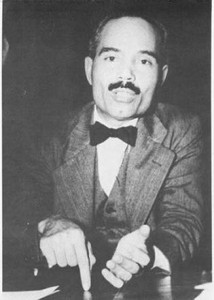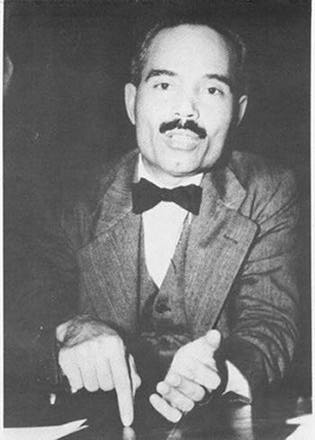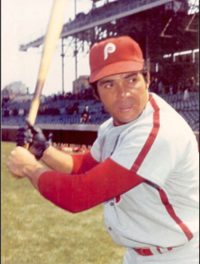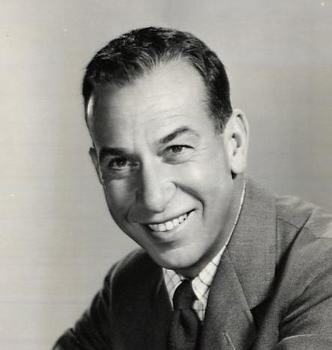 Pedro Albizu Campos (September 12, 1891 – April 21, 1965) was a Puerto Rican attorney and politician, and the leading figure in the Puerto Rican independence movement. Gifted in languages, he spoke six and was the first Puerto Rican to graduate from Harvard Law School.
Pedro Albizu Campos (September 12, 1891 – April 21, 1965) was a Puerto Rican attorney and politician, and the leading figure in the Puerto Rican independence movement. Gifted in languages, he spoke six and was the first Puerto Rican to graduate from Harvard Law School.
Albizu Campos was the president and spokesperson of the Puerto Rican Nationalist Party from 1930 until his death in 1965. Because of his oratorical skill, he was hailed as El Maestro (The Teacher). He was imprisoned 26 years for attempting to overthrow the U.S. government in Puerto Rico.
In 1950 he planned and called for armed uprisings in several cities in Puerto Rico on behalf of independence. Afterward he was convicted and imprisoned again. He died in 1965 shortly after his pardon and release from federal prison, some time after suffering a stroke. There is controversy over his medical treatment in prison.
Albizu Campos was born in the Tenerías sector of Barrio Machuelo Abajo in Ponce, Puerto Rico to Alejandro Albizu Romero, known as “El Vizcaíno,” was a Basque merchant, and Juana Campos, a woman of Spanish, African and Taino ancestry, on 12 September 1891. From an educated family, Albizu was the nephew of the danza composer Juan Morel Campos, and cousin of Puerto Rican educator Dr. Carlos Albizu Miranda.
Albizu graduated from Ponce High School. In 1912, Albizu was awarded a scholarship to study Engineering, specializing in Chemistry at the University of Vermont. In 1913 he transferred to continue his studies at Harvard University.
At the outbreak of World War I, he volunteered in the United States Infantry. Albizu was commissioned a Second Lieutenant in the Army Reserves and sent to the City of Ponce, where he organized the town’s Home Guard. He was called to serve in the regular Army and sent to Camp Las Casas for further training. Upon completing the training, he was assigned to the 375th Infantry Regiment. The United States Army, then segregated, assigned Puerto Ricans of recognizably African descent as soldiers to the all-black units, such as the 375th Regiment. Officers were men classified as white, as was Albizu Campos. Lieutenant Pedro Albizu Campos (U.S. Army)
Albizu was honorably discharged from the Army in 1919, with the rank of First Lieutenant. During his military service, he was exposed to the racism of the day. This deepened his perspective on U.S.- Puerto Rican relations, and he became the leading advocate for Puerto Rican independence.
In 1919, Albizu returned to his studies at Harvard University, where he was elected president of the Harvard Cosmopolitan Club. He met with foreign students and world leaders, such as Subhas Chandra Bose, the Indian Nationalist leader, and the Hindu poet Rabindranath Tagore. He became interested in the cause of Indian independence, and also helped to establish several centers in Boston for Irish independence. Through this work, Albizu met the Irish leader, Éamon de Valera, and later became a consultant in the drafting of the constitution of the Irish Free State.
Albizu Campos graduated from Harvard Law School while simultaneously studying Literature, Philosophy, Chemical Engineering and Military Science at Harvard College. He was fluent in six modern and two classical languages: English, Spanish, French, German, Portuguese, Italian, Latin and Greek.
Upon graduation from law school, Albizu was recruited for prestigious positions, including a law clerkship to the U.S. Supreme Court, a diplomatic post with the U.S. State Department, the regional vice-presidency (Caribbean region) of a U.S. agricultural syndicate, and a tenured faculty appointment to the University of Puerto Rico.
On June 23, 1921, after graduating from Harvard Law School, Albizu returned to Puerto Rico – but without his law diploma. He had been the victim of racial discrimination by one of his professors, who delayed his third-year final exams for courses in Evidence and Corporations. According to Marisa Rosado’s 1991 biography of him published in Puerto Rico, Albizu was about to graduate with the highest grade-point average in his entire law school class. As such, he was scheduled to give the valedictory speech during the graduation ceremonies. His professor delayed his exams so that he could not complete his work, and avoided the “embarrassment” of a Puerto Rican law valedictorian.
Albizu left the U.S., took and passed the two exams in Puerto Rico, and in June 1922 received his law degree by mail. He passed the bar exam and was admitted to the bar in Puerto Rico on February 11, 1924.





